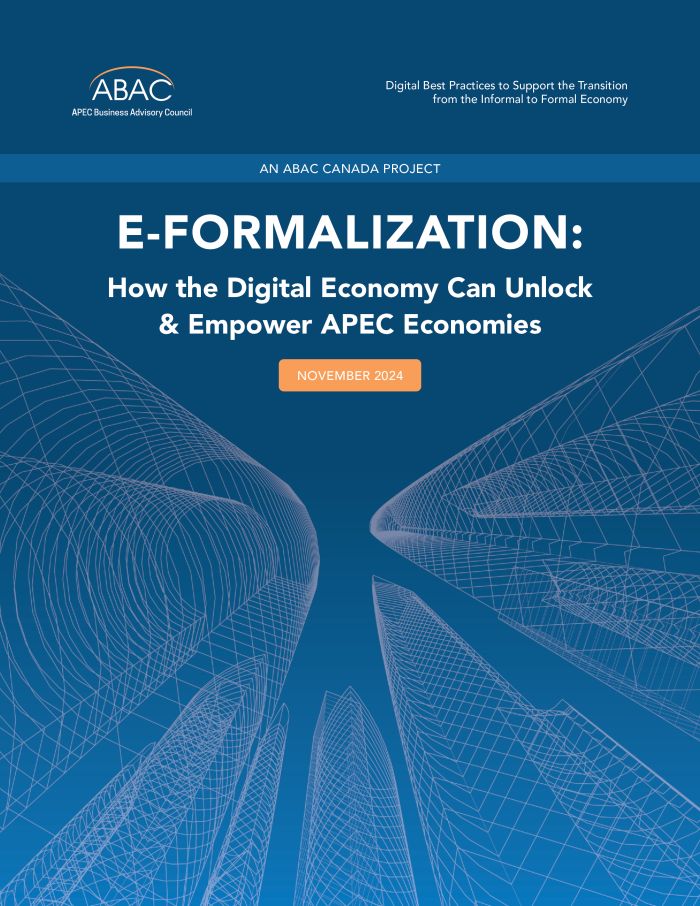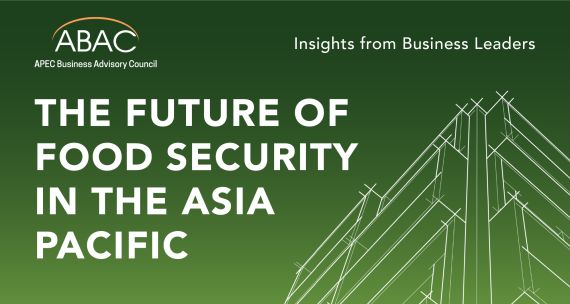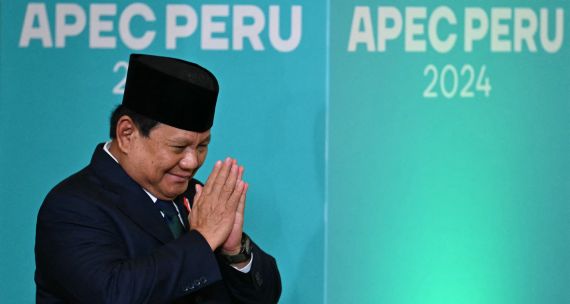The Asia Pacific Foundation of Canada, on behalf of ABAC Canada, is pleased to launch the APEC E-Formalization report, commissioned by the APEC Business Advisory Council (ABAC).
Empowering the most vulnerable populations to make the transition to the formal economy is a 2024 priority for APEC, with innovation and digitalization identified as important elements to facilitating this transition. E-Formalization: How the Digital Economy Can Unlock & Empower APEC Economies highlights promising digital practices and policy actions to support micro-, small, and medium enterprises (MSMEs) in this transition.
This year’s ABAC Canada report on e-formalization analyzes the state of informality and digitalization in APEC, presents leading practices and case studies where digital tools can be used to bolster formalization, and provides profiles for each APEC economy that highlight their best practices and areas of opportunity. By addressing the challenges of the informal economy with digital solutions, APEC can foster more inclusive economic growth. We are pleased to deliver this work as a guide.
ABAC Canada/AFC Canada is grateful for the sponsorship and support from the APEC Business Advisory Council, and to ABAC Canada Member Jan De Silva for her leadership. APF Canada serves as the Canadian Secretariat for the APEC Business Advisory Council.
Key Takeaways
- In 2020, the informal economy accounted for an estimated 13.4% of APEC’s combined GDP, varying significantly from 8.5% in the United States of America to 59% in Peru. While differing across economies, it is a fundamental factor in the social dimension of economic growth and development in the region.
- The nature of informal workers and businesses varies greatly by economy and sector, but many live in rural areas and have less formal education than their counterparts in the formal economy.
- The key barriers for informal workers and businesses to join the formal economy are the costs of regulatory compliance, complex bureaucratic processes, and a lack of institutional trust. For MSMEs, the costs to formalize often outweigh the perceived benefits.
- Over the next decade, an estimated 70% of the new value created in the global economy will be based on digitally-enabled platform models — presenting new opportunities for inclusive economic growth.
- Digital tools, while not a silver bullet, can support MSMEs’ transition to formality by creating incentives to formalize. These tools can simplify bureaucratic processes, increase access to financing to foster financial inclusion, and expand MSMEs’ market reach through e-government procurement, e-payments, e-commerce platforms, and platform economy applications.
- For digital enablers to be effective, it is crucial to address the barriers informal workers and businesses face in accessing and using digital tools.
Note: This report was commissioned by the APEC Business Advisory Council (ABAC) and is therefore only available in English, the official working language of APEC.






